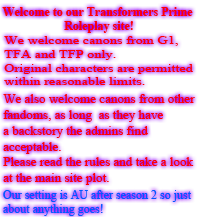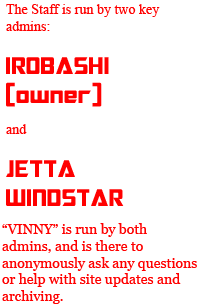Post by V I N N Y on Dec 31, 2011 1:43:24 GMT -8
I hope this doesn't offend anyone, but there are so many people who don't know the different between there, their, and they're. Sometimes, it just drives me nuts. These are simple key differences that change the entire meaning of what you're saying. So read up on how to define the THREE T'S. You'll find more in this thread as well.
(For the their/there bit)
There - A place, here, there, everywhere, anywhere.
Incorrect: Let's go to there place.
Correct: Let's go over there to his place.
---------------------------------------------------------------------------
Their - Showing ownership of something.
Incorrect: That one place, over their. That their is my comb.
Correct: That comb belongs to their mother. Their, describes whose mother.
---------------------------------------------------------------------------
They're - The shortened version of they are.
Incorrect: Over they're, by the fountain. That's they're cat.
Correct: They're so nice. They're always so talkative. (You could be describing how a person is or what a thing is like using this.)
---------------------------------------------------------------------------
---------------------------------------------------------------------------
My Mom's - Who is showing ownership; describing ownership of something, like their. It can also shorten a word with is after. That is --> That's.
Incorrect: She run's. That is Mikes comb.
Correct: That is Mike's comb. She runs.
---------------------------------------------------------------------------
She runs - There is no ownership here, usually it can describe a verb, saying what someone or something does and also helps with plural forms.
Incorrect: Mooses (Not all plural forms have an s at the end, for moose, just moose. For goose, geese.) She run's away a lot.
Correct: She runs away a lot.
Here's a small tip on punctuation use.
The comma system for that. "Not getting pie when clearly pie is there." You can still have the sentence without "clearly" so you add the comma. Not getting pie when, clearly, pie is there.



